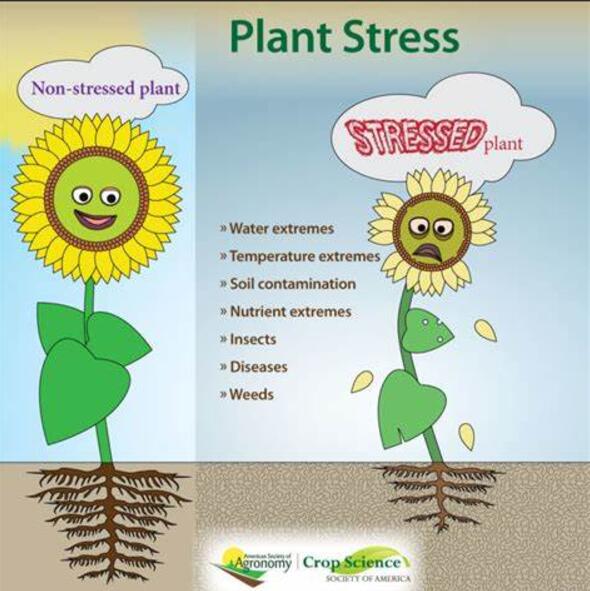太空飞行破坏了枣椰树种子的转录组动力学和发芽
IF 6.8
Q1 PLANT SCIENCES
引用次数: 0
摘要
太空飞行为研究植物的逆境反应和适应微重力的分子途径提供了一个独特的环境。在这里,我们研究了在国际空间站(ISS)上保存6个月的枣椰树种子的生理和转录组反应。发芽试验表明,即使外源赤霉素和细胞分裂素处理,6个品种的太空暴露种子也无法发芽,而地面对照的种子萌发率为100%。生化分析表明,蛋白质含量、α-淀粉酶活性和脯氨酸水平显著降低,表明抗氧化能力受损,储备动员能力下降。三个代表性品种(Lulu, Majdool和Meselli)的转录组学分析显示,Majdool表现出最强的抑制,存在广泛的差异表达。下调基因在线粒体呼吸、抗氧化防御、生长素和乙烯信号传导中富集,而脱落酸相关的休眠基因则上调。其他干扰包括DNA修复机制、细胞骨架组织和负向倾斜调节因子的抑制。所选基因的qRT-PCR验证证实了这些趋势。综上所述,这些结果表明,航天种子仍能存活,但由于ABA优势、能量代谢受损、氧化不平衡和生长方向中断而进入生理停滞状态。据我们所知,这是第一份关于多年生果树长期太空暴露的报告,为微重力下的种子生物学提供了新的见解,并突出了未来地外农业的关键挑战。本文章由计算机程序翻译,如有差异,请以英文原文为准。
Spaceflight Disrupts Transcriptome Dynamics and Germination in Date Palm (Phoenix dactylifera) Seeds
Spaceflight offers a unique setting for investigating plant stress responses and molecular pathways that enable adaptation to microgravity. Here, we examined the physiological and transcriptomic responses of date palm (Phoenix dactylifera L.) seeds maintained aboard the International Space Station (ISS) for six months. Germination assays revealed that space-exposed seeds from six cultivars failed to germinate, even after exogenous gibberellic acid and cytokinin treatments, whereas ground controls achieved 100% germination. Biochemical analyses indicated significant reductions in protein content, α-amylase activity, and proline levels, indicating impaired antioxidant capacity and reduced reserve mobilisation. Transcriptomic profiling of three representative cultivars (Lulu, Majdool, and Meselli) revealed extensive differential expression with Majdool exhibiting the strongest suppression. Downregulated genes were enriched in mitochondrial respiration, antioxidant defense, and auxin and ethylene signalling, whereas abscisic acid-related dormancy genes were upregulated. Additional disruptions included the suppression of DNA repair mechanisms, cytoskeletal organisation, and negative gravitropism regulators. The qRT-PCR validation of the selected genes confirmed these trends. Together, these results indicate that spaceflight seeds remain viable but enter a state of physiological stasis enforced by ABA dominance, impaired energy metabolism, oxidative imbalance, and disrupted growth orientation. To our knowledge, this is the first report on the long-term space exposure of a perennial fruit tree, providing new insights into seed biology under microgravity and highlighting critical challenges for future extraterrestrial agriculture.
求助全文
通过发布文献求助,成功后即可免费获取论文全文。
去求助
来源期刊

Plant Stress
PLANT SCIENCES-
CiteScore
5.20
自引率
8.00%
发文量
76
审稿时长
63 days
期刊介绍:
The journal Plant Stress deals with plant (or other photoautotrophs, such as algae, cyanobacteria and lichens) responses to abiotic and biotic stress factors that can result in limited growth and productivity. Such responses can be analyzed and described at a physiological, biochemical and molecular level. Experimental approaches/technologies aiming to improve growth and productivity with a potential for downstream validation under stress conditions will also be considered. Both fundamental and applied research manuscripts are welcome, provided that clear mechanistic hypotheses are made and descriptive approaches are avoided. In addition, high-quality review articles will also be considered, provided they follow a critical approach and stimulate thought for future research avenues.
Plant Stress welcomes high-quality manuscripts related (but not limited) to interactions between plants and:
Lack of water (drought) and excess (flooding),
Salinity stress,
Elevated temperature and/or low temperature (chilling and freezing),
Hypoxia and/or anoxia,
Mineral nutrient excess and/or deficiency,
Heavy metals and/or metalloids,
Plant priming (chemical, biological, physiological, nanomaterial, biostimulant) approaches for improved stress protection,
Viral, phytoplasma, bacterial and fungal plant-pathogen interactions.
The journal welcomes basic and applied research articles, as well as review articles and short communications. All submitted manuscripts will be subject to a thorough peer-reviewing process.
 求助内容:
求助内容: 应助结果提醒方式:
应助结果提醒方式:


